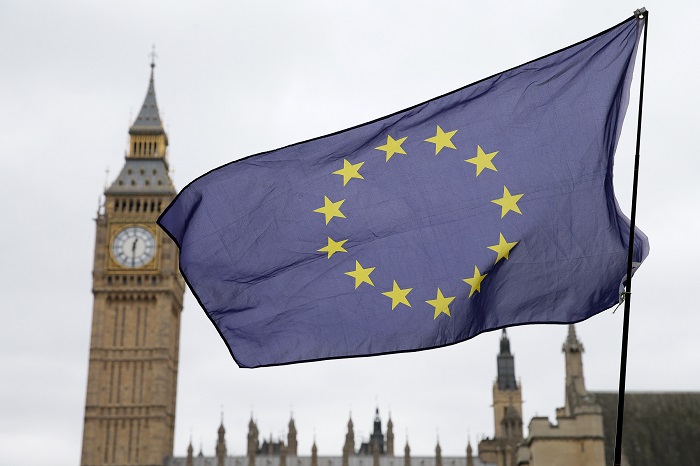UK insists to ends EU-Britain free movement in 2019
Published : 31 Jul 2017, 23:32
British Prime Minister Theresa May's office on Monday said free movement of people would end when Britain leaves the European Union (EU).
Number 10 was forced to make clarify future immigration plans after various senior ministers indicated that free movement would continue after Brexit.
Conflicting media statements by senior government ministers created uncertainty about what would happen during any transitional period after March 2019, the date of Britain's exit as an EU member.
Some commentators described the situation as a civil war between rival "remainers" and Brexit supporters.
Media reports said British Foreign Secretary Boris Johnson had been forced to deny a claim by the Liberal Democrat leader Vince Cable that he had threatened to resign from government over the Brexit issue.
Uncertainty started Friday when Chancellor of the Exchequer Philip Hammond commented that Britain would seek a Brexit transitional deal with the EU for up to three years after Brexit. Hammond is acting head of the government during May's vacation on a walking trip in the Alps.
Hammond said the cabinet was united behind the need for a transitional period of up to three years after Brexit, saying many arrangements would "remain very similar to how they were the day before Britain exited the EU."
Meanwhile, International Trade Secretary Liam Fox warned that allowing unregulated EU immigration to continue would be a betrayal of last year's referendum which resulted in a 52-48 percent vote in favor of Britain leaving.
Hammond's comments generated a response from Keir Starmer, the Labour Party's opposition Brexit spokesman.
Starmer welcomed Hammond's statement, but added: "In light of the clear divisions this week within (May's) Cabinet, I hope the chancellor was not merely speaking in a personal capacity."
The government's interior minister, Home Secretary Amber Rudd, also said in a weekend statement that migrants from EU member states will still be able to come to Britain provided they register.
In a briefing on Monday, a spokesman at No 10 said details of post-Brexit immigration arrangements would become clearer at a future date, with legislation scheduled to be presented to the British parliament later this year.
The spokesman added: "Free movement will end in March 2019. It would be wrong to speculate on what these might look like or to suggest that freedom of movement will continue as it is now."
"We've published proposals on citizen's rights. Last week the Home Secretary set out a registration system for EU nationals arriving post March 2019," he added.
The spokesman said at the media briefing Monday that the prime minister still believed "no deal is better than a bad deal," adding: "What we are fully committed to doing is securing a good deal for Britain and for the European Union and we are making good progress towards it."
Downing Street's clarification was backed up by the Health Secretary Jeremy Hunt, who in a series of media interviews played down reports of a split among ministers in the cabinet, saying it was "absolutely united" behind a "gradual, business-friendly Brexit."


